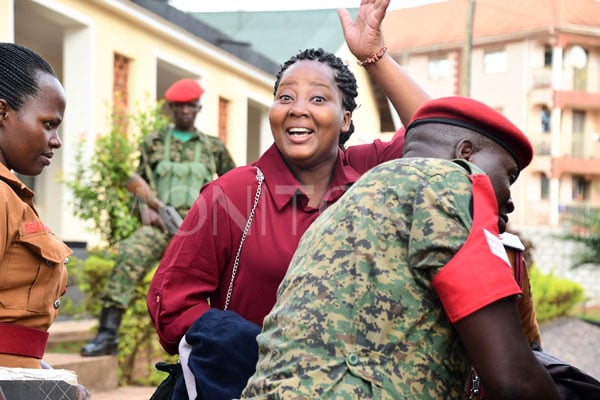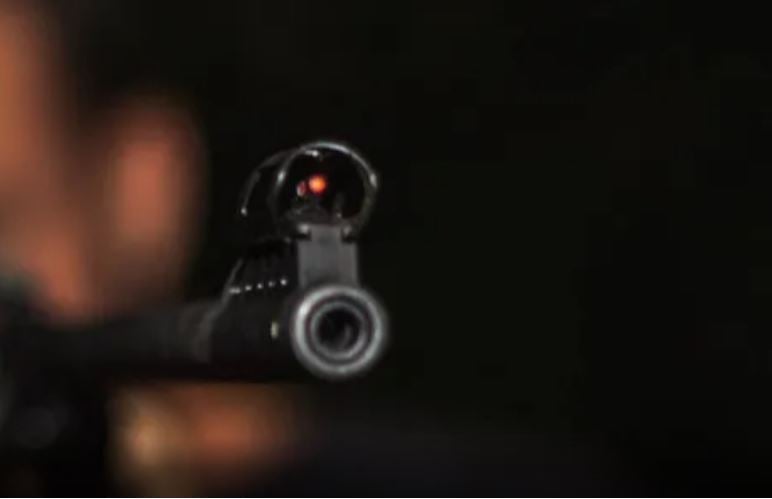Prime
Chief Justice Owiny-Dollo speech at burial of Lokech

Chief Justice Owiny-Dollo.
What you need to know:
- Chief Justice Owiny-Dollo was one of several guests at the burial, last Friday, of Deputy Inspector General of Police Paul Lokech, promoted posthumously to the rank of Lieutenant General.
Our reporting about his comments carried in our Saturday edition contained inaccuracies and falsehoods, which we regret and apologise for. We, therefore, take the early opportunity to set the record straight and publish below a slightly edited verbatim version of what the Chief Justice said.
“I spoke here yesterday at great length, I will speak very briefly, very characteristically brief, both in English and Luo, so that I don’t bother my brother to again translate.
So much has been said about [Deputy Inspector General of Police], Lt Gen Paul Lokech, there is no need to add anymore. He distinguished himself in the service of our country. He was passionate, he loved his profession, he made his mark in this country and beyond and that explains why we have a whole HE President of [Somalia] attending his burial today. It is not a feat many people can accomplish.
I just want to make an appeal, Lt Gen Lokech won medals and he has just been promoted posthumously, again another feat. But his daughter spoke something very important at the Joint Sitting of the District Councils of [the Acholi Sub-region] to honour the fallen son of Acholi; that her father, Lt Gen Lokech, has said his next personal assignment … was to see Acholi land regain its glory. And I think we have said enough about Lt Gen Lokech. We should now focus on what the lord God said: ‘You will not do it. It will be done not in your lifetime.’ I think this is what we should focus on.
Gen [Salim] Saleh, I didn’t know this idea of parish model you had a hand in. Now that you have confessed, I will ensure you are not court-martialled for telling us.
Where you have failed, where the government of Uganda has failed, is not about the cause of Lt Gen Lokech’s death. That’s a matter for his family. It’s not a matter for politics here. If the family says ‘no, we do not want the cause of death mentioned to any person’, nobody, not even the President [Museveni], because it’s a private matter. We own him (Lt Gen Lokech), yes, but he is property of his family. Whatever we say [we] need to respect the family.
My quarrel with you (Gen Saleh), and you people (mourners) know I was with Gen Saleh in the pacification of Acholi land when I was Minister of State where Grace Kwiyucwiny for Northern Uganda is, in the midst and thick of armed [Lord’s Resistance Army] conflict. We used to quarrel a lot and the following day we would be friends. He knows how we quarrelled and I can quarrel very badly [and] he knows.
When you (Gen Saleh) designed the Parish Model, you forgot this, and I hope you can review your paper and proposal to the government of Uganda. You forgot that Acholi sub region was in a state of armed conflict for a quarter-of-a-century, 25 years, the longest period of armed conflict any area of Uganda has experienced. And you rank Acholi sub region in the Parish Model with Buganda, Bundibugyo, Mbale and Jinja who have not had this experience of armed conflict. That is where you failed Lt Gen Lokech.
I would have loved to hear you say ‘for the Acholi sub region, it should be Village Model, not Parish Model.’ You are a General; and I like reading military history. I like reading about great Generals like [American Dwight, the supreme commander of Allied Forces in Europe], [World War II American] Gen [George Catlett] Marshall, who as the US secretary of State designed the Marshall Plan for the reconstruction of Europe, [American military general] Douglas MacArthur, supreme commander in the far East, and George Patton, the American general who captured southern Europe in World War II.
Germany is the strongest economy in Europe because General Marshall, a General like you, realised that the only way you can bring peace in Europe, the only way you can put a bulwark between communism and capitalism is by having a strong Germany and a strong Japan. It was a deliberate intervention which you needed to have done here [in Acholi land] because of the potential, because of the economic potential that the Acholi sub region has --- the greatest land, the choicest of all lands.
All that you need to do is make a special intervention for this area to cure, to address the quarter-of-a-century [LRA] armed conflict. Then, and only then, would have honoured the memory of Lt Gen Paul Lokech. He (Lokech) said, ‘What remains for me to do is make Acholi great again’. But he died with the knowledge that Acholi is ranked the most poverty-stricken area of Uganda.
This was the findings of a study not carried by me, not carried by any Acholi person that you would accuse of bias. The most poverty-stricken part of Uganda is Acholi, the area where education has died is Acholi. How can you put Acholi in a Parish Model with the rest of Uganda?
So, this is my plea. The government of Uganda must sit back, and you, our leaders in Parliament, I will never stop you from seeking to establish what killed Lt Gen Lokech.
Please do it, but also do it within the law; but not to whip up emotion here. You don’t even have to tell people that ‘we are going to find out [the cause of Lokech’s death]. This is just appealing to the emotion of the people. Sit down, follow the laws and procedures, then you can gather people and say, ‘we were concerned, we did this and this is our finding’. That’s the proper way of doing it. But this thing that you do, so that you hear the yodelling and ululation of our mothers, I don’t think it will take us anywhere.
My message to the government of Uganda [is that] we owe it to Lt Gen Lokech and his comrades-in-arms, who put themselves in in harm’s way and put their lives in the line of fire, to bring peace here.
Vernacular version translated
To our people, there has been an outpouring of grief; tears have rolled down our cheeks, our chest is all wet with tears, we cannot believe, we are living in denial about the demise of Lt Gen Paul Lokech, but it’s a reality. Even before Paul died, you know I have had a theme, whenever there is a gathering and I have been consistent on this. I think there is a greater urgency with the death of Lt Gen Paul Lokech because he was a player in bringing peace to Acholi land.
The question I want each Acholi person to ask himself or herself is: When we were crying for peace, what did we want, what was it that we were being denied when there was no peace, when there was belligerence? We must ask ourselves and discuss [among] ourselves in the various fora. You want to do it at a drinking joint, please ask that question. You want to do it in wang oo (fire place), the literal Wang OO or symbolic Wang OO. What did we want? I will endeavour to give my view.
We all wanted to go back to the life we were living before armed conflict erupted. That is what we wanted, we wanted an Acholi home where you would go and if you were a foreigner, you would ask ‘what is this house for’? They would point at dero (granary) and ask if that was a house.
The mother of home would proudly lift the roof of the granary and just scoop g-nuts or sim sim or millet, but rarely sorghum. That is the Acholi we wanted; that is why we wanted peace. We wanted that situation where Acholi sub region, when it was a district, was at par with the districts of East Mengo and West Mengo of Buganda.
We wanted Acholi where there was no equivalent for the word Kwashiorkor. I ask you the question: Fifteen years since 2006 June when the guns went silent, what have you, as an Acholi, done to enable yourself recover that lost glory? If you do not have those things which I listed that made Acholi a proud tribe of the Ugandan society, what are the impediments? What is it that needed to be done that you, me, the speaker - a son of Acholi, what is it that we needed to have done that we have not done?...
Chief Justice translates Minister Otafire speech
‘A child you fed right from the time he wasn’t even crawling to the time he is able to compete at Olympics, why would you kill him?’ Otafire said that they did that [nurturing] to [National Resistance Movement party secretary general Richard] Todwong and [Speaker of Parliament] Jacob (Oulanyah); so, ‘why would they kill them then’.
Otafire then asked the question: Do you know a person who is interested in a particular seat can kill you? Do you know that a person interested in Jacob’s seat can kill him? Even those who want the position I’m in can kill me.
Chief Justice’s conclusion
In conclusion, the Chief Justice said: ‘So, if we investigate what killed our brother [Lt Gen Lokech], don’t stick to only one tree (single possible cause), but also investigate other trees (other causes). The tree you think can’t kill may be the one [that] killed our son and it might be the one that will tomorrow kill Owiny-Dollo and will also kill Jacob Oulanyah, Todwong or [Disaster Preparedness and Refugees Minister] Hillary Onek.’’
Transcribed by Polycap Kalokwera




